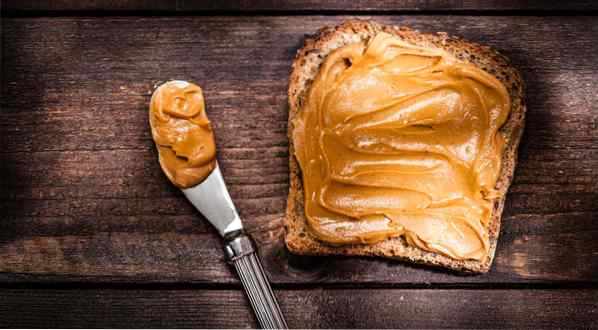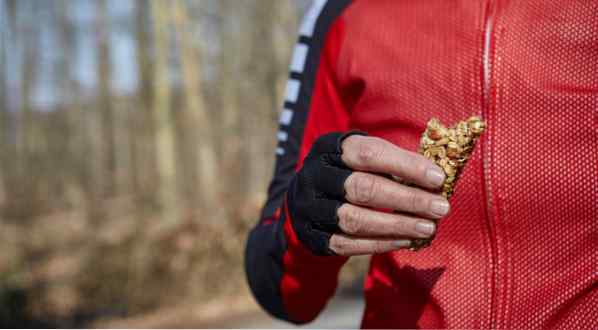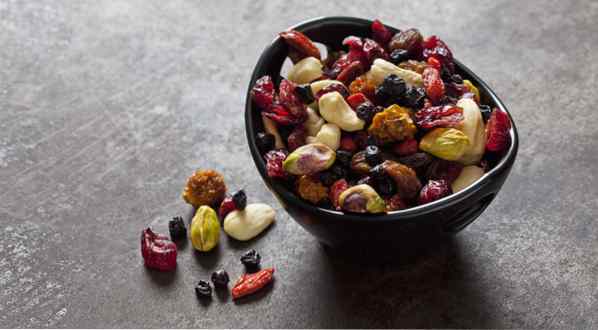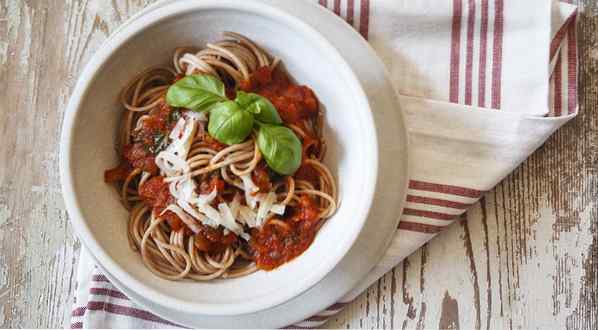
7 Surprisingly Sugary Foods You Should Avoid at All Costs
Although we tend think of certain foods as healthy or harmless, you may be surprised to learn so-called healthy foods can actually be loaded with hidden sugar. Sometimes it's in the form of pure cane sugar, aka the “bad stuff,” or fruit juices and syrups. Either way, too much of it is definitely a bad thing for your health and your physique.
Sugar is one of those ingredients that everyone knows they should avoid-yet so many people can't seem to get enough of it. Eating too much sugar can not only make you fat-regardless of how hard you work out-but also increase your risk of heart disease and diabetes.
According to Harvard researchers, the average American consumes 22 teaspoons of sugar per day-which tacks 350 calories on top of everything else you're eating. That number is also way above the American Heart Association's recommended intake of 6 teaspoons per day for women and 9 daily for men.
Additionally, most sugar only provides empty calories. Things like fruit juice might provide you with additional minerals and vitamins necessary for everyday function, but too much of those will also put you at a higher risk for diabetes, weight gain, and cardiac conditions.
You're probably already avoiding things like sugary cereals, candy, most chocolates, and more, but some foods marketed as “clean” could be anything but when you look at the nutrition facts label. Just take a look at the ingredients on every food item the next time you go shopping.
These seven foods are hidden sugar culprits that eat up that allotment faster than you'd expect.
1 of 7

fcafotodigital / Getty
Low-fat Peanut Butter
For any guy trying to shed fat, it's tempting to pick up a jar of low-fat peanut butter. After all, getting your protein without the fat is the ideal scenario, right? But when fat is taken out of a food, something needs to take the place of all that flavor, and that something is usually sugar. All brands are different, but two tablespoons of low-fat peanut butter contains an average of 4-5g of added sugar (or 10 percent of your daily value). Even if you're fine consuming a little sugar, you may not like eating corn syrup solids, soy protein, or hydrogenated oils. Instead, embrace the (good) fat and choose peanut butter brands that are made solely with peanuts and salt-no palm oil necessary.
2 of 7

Maria Fuchs / Getty
Some Protein Bars
Have you ever wondered how some protein bars contain 20-30g of protein and still taste good? Or how they make protein taste like chocolate and peanut butter? The answer is sugar.
One protein bar from a common brand we shall not name has 30g of protein (awesome) and a whopping 27g of sugar (not awesome). Although you definitely need protein after an intense workout, that much sugar can actually counteract your workout gains. Instead, opt for a protein bar with ingredients you can see and feel good about. You're far better off getting protein from lean meat or a protein shake post-workout, or opting for protein bars without all the added sugar.
3 of 7

DebbiSmirnoff / Getty
Barbecue Sauce
Bottled barbecue sauce can transform a healthy chicken dinner into a sugar-laden, poultry dessert. For brands, a mere two tablespoons of barbecue sauce can run you 11g of sugar (or more)-and it'll likely contain high-fructose corn syrup, soybean oil, hydrolyzed corn protein, and caramel coloring. If you really can't eat your grilled chicken without it, try making your own with this homemade recipe-or just opt for a common hot sauce like old-school Tabasco, which has zero carbs and zero fat.
4 of 7

Juanmonino / Getty
Multi-Grain Crackers
One of the biggest health myths out there is that multi-grain anything is good for you. People think that when the label says, “Made with whole grain,” it's healthy, right? Wrong. Unless “whole grain” is the first ingredient, that cracker is likely made with loads of refined grains and some added sugar. Some crackers have 4g of sugar in just eight crackers. Instead, opt for whole-grain crackers, like Whole Grain Wasa crackers, which are made with just whole grain rye flour, yeast, and salt.
5 of 7

Westend61 / Getty
Dried Fruit
Some dried fruits are just fruit with the moisture sucked out. Others are fruits that have been dried and then dipped in sugar. For example: If you've been trying to eat more salads, but you tend to throw in a few dried cranberries, then we have a reality check for you: one ¼-cup serving has 29g of sugar (or about half the amount you should have in a day). When buying packaged dried fruit, read the ingredients. If the only ingredient is the fruit, you're good to go. If it's fruit and sugar, stay away. This may sound like a no-brainer, but fresh fruit has no added sugar.
6 of 7

Westend61 / Getty
Tomato Sauce
Some home chefs throw a pinch of sugar in their tomato sauce to even out the bitterness of canned tomatoes. Jarred sauces take this a bit further with some brands packing as much as 10g of sugar in a ½-cup serving. Jarred or canned tomato sauce may be a quick fix to a boring dinner, but making your own is the better way to go. Try this recipe (feel free to swap in ground turkey for the lentils) or just chop some fresh tomatoes, garlic, and olive oil, and add to any Italian dish.
7 of 7

Burak Karademir / Getty
Sweetened Iced Teas
You can definitely find unsweetened versions of iced tea if you look hard enough. However, most bottled iced tea is sweetened-even the green teas. Even though it doesn't contain any nasty additives, a bottle of Honest Honey Green Tea has 19g of sugar. A smarter pick from the same brand: Honest Tea's Unsweet Tea, which has zero sugar and zero calories. Alternatively: Simply make your own by brewing a strong tea and pouring it over ice.



Nimeni nu a comentat acest articol încă.